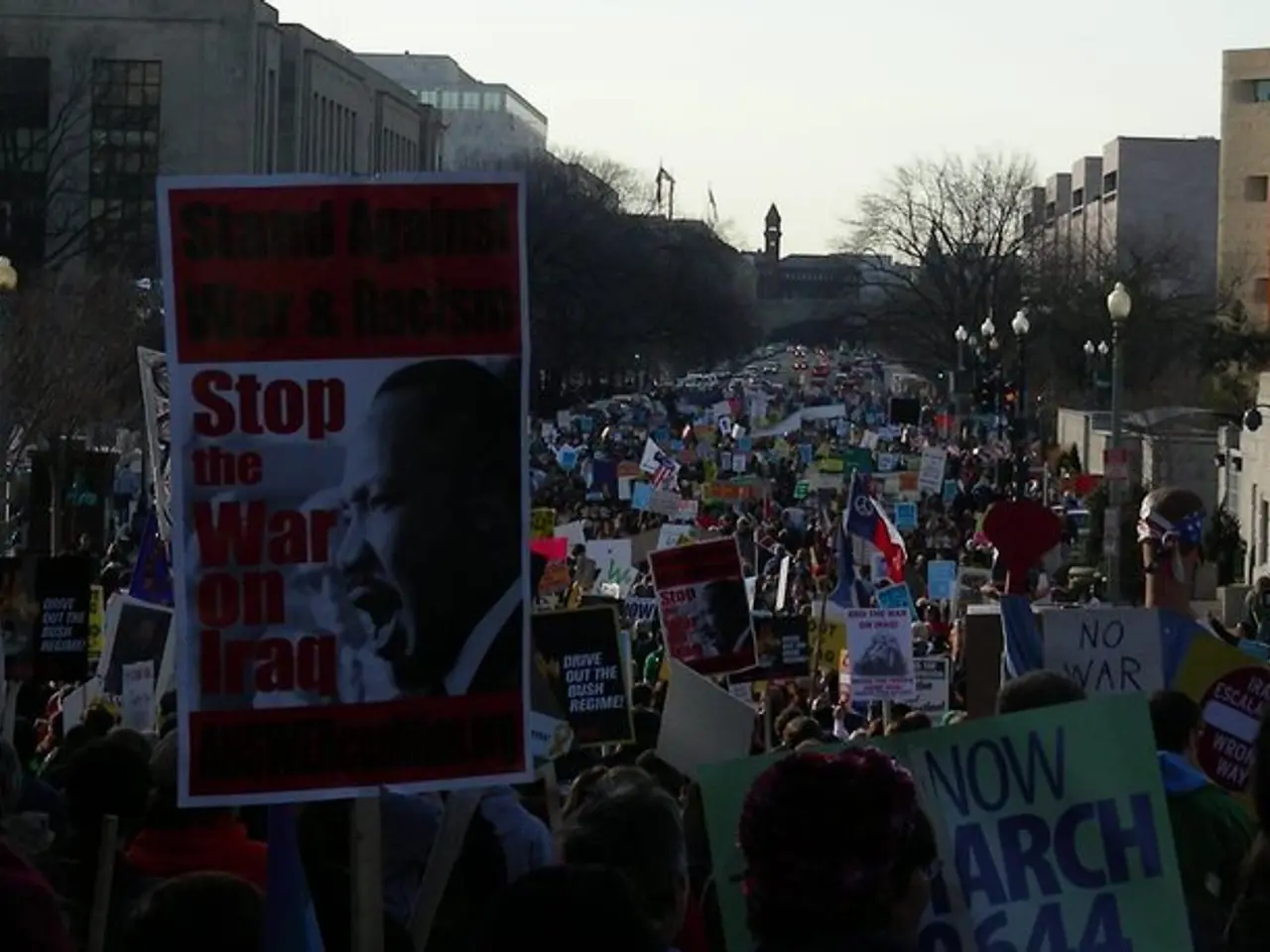UK's far-right groups should consider examining their own nation's issues prior to spreading fear-mongering propaganda regarding migrants.
In the current political landscape of the United Kingdom, the immigration debate has taken a polarized turn, with significant involvement from far-right groups pushing for hardline anti-immigration policies. These groups, including figures like Nigel Farage and his Reform UK party, advocate for stringent immigration controls and mass deportations, as seen in their proposals for "Nightingale Jails" and plans to deport all foreign criminal offenders [2].
These far-right activists often frame immigration as a law and order issue, calling for immediate, harsh measures. Their actions have contributed to societal divisions and complicated comprehensive immigration reform, with increased polarization that views immigration as a security threat [4]. This has led to public anxiety and influenced government policies towards a tougher stance on returns and deportations. Notably, returns of unauthorized migrants from the UK have increased since 2021 after a decline in the 2010s [3].
In contrast, mainstream parties like the Labour Party promote a more structured immigration system with pathways to residency and citizenship, focusing on integration and support for skilled migrants and families [1]. Debates within these parties revolve around balancing fair access with controls, but their proposals also entail tighter residency requirements and language proficiency enforcement.
The ongoing controversy surrounding the accommodation and processing of large numbers of asylum seekers further fuels the immigration discourse and political tensions [4]. Accommodation for migrants awaiting official processing is dotted around England, with some locations becoming targets for anti-migrant protesters, often from far-right and neo-fascist groups, who can be intimidating [5].
The far-right's Islamophobic rhetoric, often claiming they "want their country back," has been a recurring theme in the 2020s [6]. This activism, which includes incidents of violence and abuse, necessitates a strong response from law enforcement agencies to maintain peace and order [7].
Amidst this contentious environment, Prime Minister Keir Starmer and his government have agreed to stop the small boats by deporting anyone arriving in the UK on an illegal sea crossing [8]. However, the UK will also accept the same number of legal migrants from France under a policy called "One In, One Out" [9].
It is crucial to remember that this dynamic underscores a complex and nuanced policy environment, where far-right activism intensifies pressure for more restrictive immigration measures, while broader debates continue over fairness, legality, and societal integration. The UK, while flawed, is not a failed country, and it is essential for MPs to think clearly and avoid constant slurs that undermine its standing [10].
References:
- Labour Party Immigration Policy
- Far-right Proposals for Deportations and "Nightingale Jails"
- Increase in Deportations since 2021
- Controversies Surrounding Asylum Seeker Accommodation
- Anti-migrant Protests at Migrant Hotels
- Far-right Islamophobia in the 2020s
- Police Response to Far-right Violence
- Government's Plan to Stop Small Boats
- "One In, One Out" Migrant Policy
- Urging Caution in Labeling Britain a "Failed" Country
Read also:
- Discussion between Putin and Trump in Alaska could potentially overshadow Ukraine's concerns
- Independence supporters in New Caledonia refuse agreement offering authority without a vote on sovereignty
- Proposed Standardization of Food Labeling Laws Among Member States by the Commission
- Experimenting with Merz's Germany has stretched into an extended period of time, resembling a numerous three-month duration.








